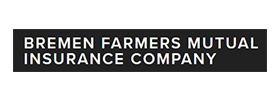As of 2022, there were nearly 44 million housing units that were occupied by renters in the United States. This number has steadily increased for a number of reasons, the main of which being the ever-rising cost of living. For many Americans, renting can be a more affordable alternative to home ownership.
At the same time, many homeowners have found themselves in a sticky situation when it comes to rising mortgage rates and general life expenses, and to combat their seemingly endless expenses have turned to renting out a portion or floor of their home. Careful – if your agent doesn’t know about your renting habits, they should. Here’s why.
Standard home insurance is limited when it comes to renting
Home insurance is designed to cover the home, its foundation, four walls, basement, roof, etc., as well as your personal liability (your legal expenses if anyone decides to sue you for injuries or damages to their property), your belongings, and even necessary living expenses if you had to live elsewhere for a time while your home was being repaired or restored.
But home insurance is designed to cover you and other household members, not guests or unrelated (and even related!) individuals renting out a room or floor in your home. It gets especially complicated when you’re renting out parts of your home in exchange for rent payments, which changes the occupancy of your home from simply being your dwelling to now being a commercial operation.
In short, the majority of home insurance companies will not cover homes if they are also being rented out. Some home insurance companies will, under the condition that the homeowner purchases a rental endorsement. Other companies won’t want to stay “on risk” at all, and you’ll need to go elsewhere to find the coverage you need.
Why you need to be honest about your renting habits
Being upfront about all your information, including the primary occupancy of your home, is crucial. Failing to disclose your renting habits to your insurance company borders the line of insurance fraud and can easily land you in hot water if you’re found out. At best, any claims you make will be denied. At worst, your policy could be cancelled, and you’ll later have a much harder time finding coverage.
Speaking strictly from a protection POV, not being honest about your renting habits may mean you won’t acquire the protection you need to cover your rental activities. This includes, but isn’t limited to, any liability associated with your rental habits, any damages your tenant accidentally does to your property, and any fair rental income you’re entitled to that you can’t receive as a result of an insured loss.
Will my rental activities increase my home insurance costs?
Yes, and this is often why homeowners hesitate to inform their insurance company. Adding an endorsement to cover your rental habits or even purchasing landlord insurance can cost more, but you’re likely better off disclosing your activities to your insurance company and paying the slightly increased cost than you are lying about your rental. If you’re found out, or even cancelled, your insurance costs could increase dramatically the next time you go to find coverage, and could end up costing you hundreds more dollars than you’d pay had you simply been honest about your renting habits.
Do you need to have landlord insurance?
If you rent out a part of your home, such as a bedroom or a basement, then no – not usually. Usually what will happen is your home insurance company will have you purchase a rental endorsement, which increases your protection to include landlord liability, dwelling coverage against tenant accidents, and fair income rental coverage.
If you had a second property that you didn’t occupy, such as a condo, you would need to purchase a landlord policy. You would never insure a property twice, i.e., you would never insure a property with both landlord and home insurance. Your primary home with a rental unit (bedroom or floor) can be insured with a home policy but all your rental activities may be covered under an endorsement included in your primary policy.
Do I still need insurance if I rent out my home through Airbnb?
Yes. In fact, many insurance companies will view hosting platforms, like Airbnb, as even riskier than longer-term rentals. Many insurance companies will offer short-term rental insurance as an endorsement, which you can add to your home insurance policy, or you can purchase a standalone policy for a home that is primarily used as an Airbnb property.
Note: many home-sharing platforms will offer their own insurance, which is free, but may be limited. It’s usually recommended that you purchase short-term rental insurance for more comprehensive coverage. Even if you have Airbnb-provided insurance, you’ll still need to loop your insurer in on your rental habits.
Confused?
If you are renting out a part of your home, considering doing so, or are confused about anything we’ve discussed in this article, reach out! Our agents are happy to discuss your home insurance with you and review your policy to ensure you have all the coverage you need.























